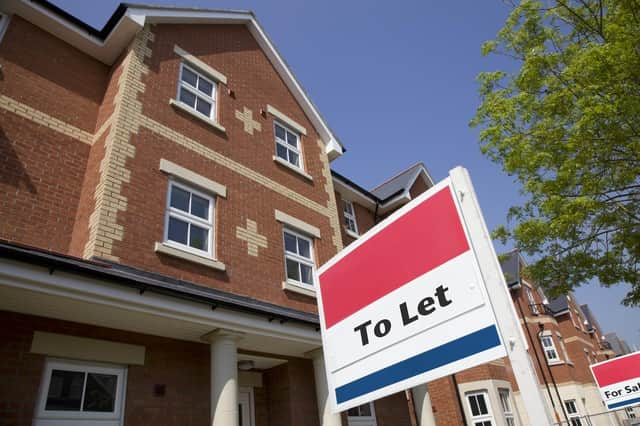Newry Mourne and Down rental prices soar by 10%, survey reveals


The average rental price in Newry Mourne and Down is £720 per month.
Meanwhile, two thirds of people in Northern Ireland believe rent is too expensive.
Advertisement
Hide AdAdvertisement
Hide AdThe figures have been revealed by CompareNI.com who asked people in Northern Ireland about their experience with renting.


The majority of those surveyed (68%) said they believed rent in the region is too expensive.
Recent data analysed by CompareNI.com shows rental prices across Northern Ireland have increased by 10% in the last year.*
The data has also detailed the soaring average cost of rent in regions across Northern Ireland. The highest costs for rental properties on average were in Belfast at £952 per month, Ards and North Down were next with £878 per month, followed by Lisburn and Castlereagh at £843 per month and Newry, Mourne and Down at £720 per month.
Advertisement
Hide AdAdvertisement
Hide AdCauseway Coast & Glens saw the highest annual rate of rental price growth at 13.6%, averaging £703 per month, closely followed by Mid and East Antrim with an annual rent increase of 13.4%, averaging £691 per month.
Derry City and Strabane, Belfast, Lisburn and Castlereagh, Newry, Mourne and Down, Armagh, Banbridge and Craigavon all saw rental prices grow by 10% over the last year.
With costs becoming unmanageable, the survey by CompareNI.com also found that one in five renters in Northern Ireland have had to borrow money, or forgo essentials like food or heating in order to afford rent.
The high demand and lack of supply of rental properties is a persistent challenge for people in Northern Ireland with 70% of respondents stating they did not believe there were enough rental properties available.
Advertisement
Hide AdAdvertisement
Hide AdThis is reflected in recent data that showed market supply was down by 8% on Q4 of 2022 and market demand was up 30% during the same time frame.*
In addition to this, available houses are disappearing fast. On average, pre-covid rental properties were on the market for an average of 37 days before they reached let agreed, now the average time is just 25 days.
Commenting on the figures, Ian Wilson, Managing Director of Northern Ireland’s largest price comparison website, CompareNI.com said: “Rental prices across Northern Ireland have increased significantly in the last year and many renters here are struggling to keep up, with one in five being forced to forgo essentials or borrow money in order to afford rent.
“It is important for renters to know their rights. There should normally be at least one month’s notice in place for any price increases on rent. The amount landlords can increase the rent by depends on your agreement, but they must be fair, realistic and in line with other properties in the area. Knowing this could save you from agreeing to an unfair rent price hike.
Advertisement
Hide AdAdvertisement
Hide Ad“Renters can also protect themselves against unexpected or additional costs while renting. Taking photos of prior issues when moving into a new property and taking note of any damage can help protect the security deposit. If an accident happens in a rented property which leads to damage of the space or any furniture owned by the landlord, it is important to notify them straight away.
“If you need to make dramatic savings, even temporarily, it could be worth discussing adding a roommate with your landlord. Not only can this help spread the cost of the rent itself, but also other household bills such as electricity, gas and broadband.
“It’s also important to cover yourself with renters insurance to protect your belongings – don’t forget to inform your insurer each time you move properties, failure to do so will likely void your policy and leave you vulnerable should you need to make a claim.”